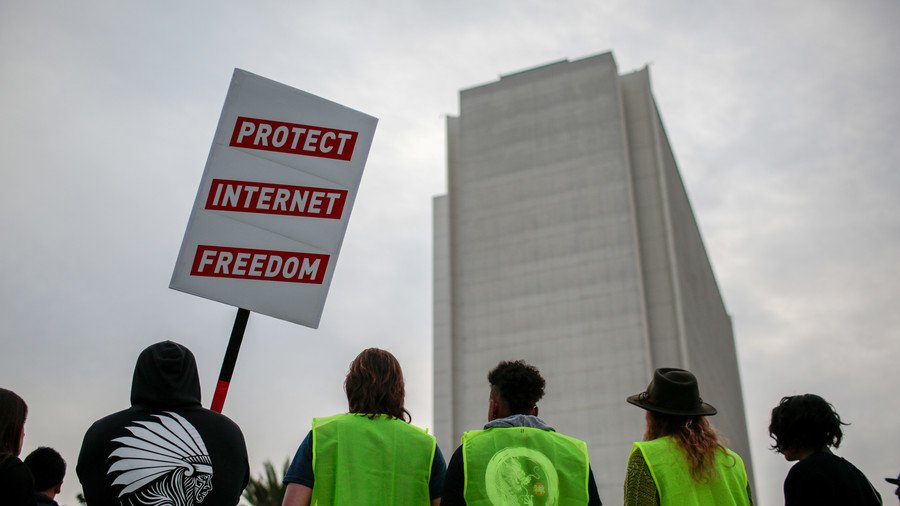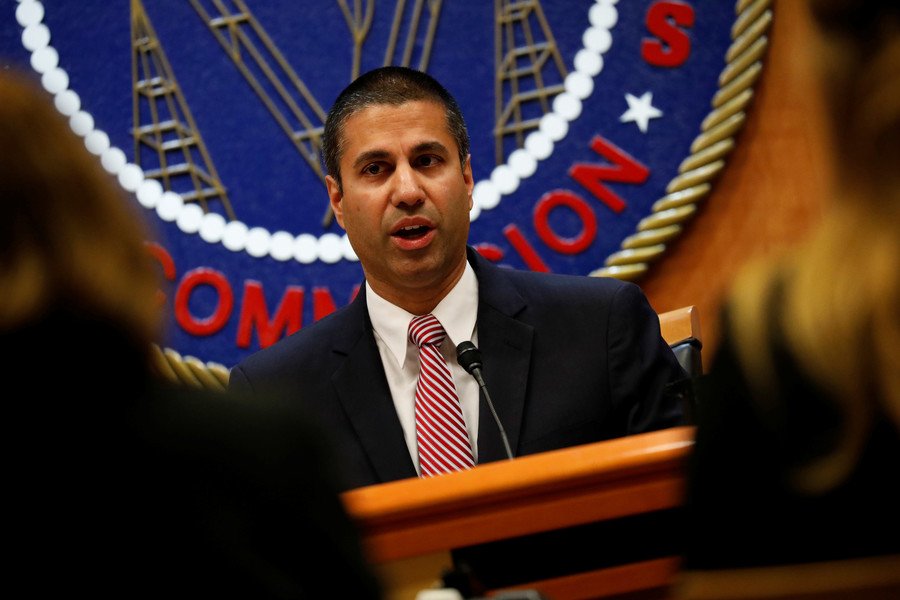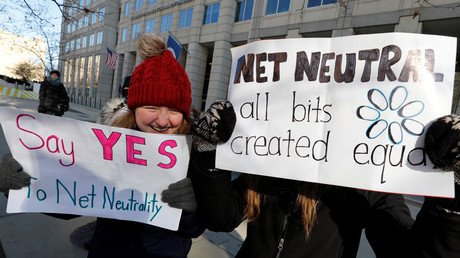Net Neutrality repeal tainted by fraud & bots, Stanford study confirms amid NY AG probe

An investigation into widespread fake comments submitted to the Federal Communications Commission during the debate over repealing net neutrality has subpoenaed 14 groups, as more evidence emerges that as many as half were fake.
New York Attorney General Barbara Underwood sent subpoenas to telecom industry groups, conservative groups, and pro-net-neutrality groups alike in an effort to get to the bottom of the fake comments, which may have tipped the scales in favor of repeal. The FCC received a record 22 million comments before opting to roll back the provisions passed in 2015 that required internet service providers to handle all web traffic equally.
Suspicions that the majority of the comments submitted were inauthentic – possibly the work of bots – received a boost last month when the FCC was forced to release their records on the comment process. A study by Stanford University researchers subsequently found that only 800,000 of the comments were unique, and, of those, 99.7 percent were in favor of keeping net neutrality rules in place.
While those numbers don’t mean all 21.2 million of the other signatures were fake – organized campaigns often allow petition signers to affix their name to a pre-written letter, saving them time and effort – the study does shine a new light on a very contentious decision. The unique comments showed strong bipartisan support for net neutrality, including among rural voters, and indicated that commenters had a solid grasp of the issue.
When the FCC opened net neutrality up to public comment last year, the result was chaos, with millions of comments sent by bots using stolen, fake, or deceased identities. The agency never really addressed the problem, instead choosing to push ahead with the vote. In August, FCC Chair Ajit Pai admitted he had for seven months concealed knowledge that an alleged cyberattack on the commenting system – blamed for much of the chaos – had never occurred. Pai is a former Verizon lawyer, suggesting a potential conflict of interest with the work of the regulator he now chairs.

The New York lawsuit was filed in January and co-signed by Attorneys General from 21 other states. Then-AG Eric Schneiderman (who has since been forced to step down because of allegations related to the #MeToo movement) cited the Administrative Procedures Act, calling the FCC’s decision “arbitrary, capricious, and an abuse of discretion” – and a violation of federal law. At the time, he alleged that as many as two million comments were faked using stolen identities, most in support of the repeal. That estimate has since climbed to nine million, according to Underwood’s investigators.
Groups who received subpoenas include Broadband for America, Century Strategies, MediaBridge. They are – respectively – a telecoms-supported coalition, a political consultancy founded by a Republican operative, and a conservative messaging firm. Vertical Strategies, another Republican consulting firm, also received a subpoena, as did multiple groups linked to the Center for Individual Freedom, which generated thousands of identical comments to the FCC.
Like this story? Share it with a friend!















